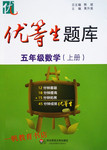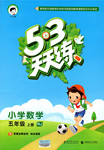题目内容
Unlike watching TV, reading is a highly active process _____ it requires attention as well as memory and imagination.
A. until B. bit C. unless D. for

 优等生题库系列答案
优等生题库系列答案 53天天练系列答案
53天天练系列答案The blue tits(山雀) have been inspecting the nest-box again this year. The male is the house-hunter but the female will make the final choice. He lands at the hole and turns his head to expose his white cheeks as a signal to attract the female from where she has been feeding.
Among many birds that nest in holes, the male has a light-coloured patch on its plumage(鸟羽) which acts as signal for drawing the female’s attention to a suitable nesting-place. Unlike the blue tit, the redstart(红尾鸲) may be only the male that strikingly coloured and the female is not beautiful.
A few years ago I was lucky enough to spot a pair of redstarts in action in a Walsh wood. The male was leading an interested female to holes that he had previously(先前) checked out. He sat at the entrance of each hole and put his head on to show off his white forehead, or his head in to reveal(显露) his tail.
If the female failed to react to his visual signals, the male sometimes sang for extra effect, while gliding towards her on spread wings and tail. Once the female accepts by following the male through the hole the displays stop, you must be at the right place at the right time to watch them.
【小题1】How do the blue tits choose their nest?
| A.They choose their nest together. | B.The male chooses their nest. |
| C.The house-hunter chooses their nest. | D.The female chooses their nest. |
| A.how the male made his tricks |
| B.how an interested female played with the male happily |
| C.what the male displayed and won the female |
| D.that the male tried his best but failed to attract the female |
| A.at any time | B.regularly | C.in April | D.occasionally |
| A.a bird expert | B.a bird-hunter | C.a bird raiser | D.a scientist |
阅读下面短文,根据所读内容在表格中的空白处填入恰当的单词。注意:每个空格只填一个单词,并请将答案写在答题纸上。
The family sphere (范围) used to be defined by its isolation from the public realm. There was the public male realm (领域) of "rational accomplishment" and cruel competition, and the private female and child-rearing sphere of home, intuition (直觉) and emotion. The private realm was supposed to be isolated from the realities of adult life. For both better and worse, television and other electronic media tend to break down the difference between those two worlds. The membrane around the family sphere is much more permeable (可渗透的). TV takes public events and transforms them into dramas that are played out in the privacy of our living rooms, kitchens and bedrooms.
Parents used to be the channel through which children learned about the outside world. They could decide what to tell their children and when to tell it to them. Since children learn to read in stages, books provide a kind of natural screening process, where adults can decide what to tell and not tell children of different reading abilities. Television destroyed the system that separated adult from child knowledge and separated information into year-by-year slices for children of different ages. Instead, it presents the same information directly to children of all ages, without going through adult filters.
So television presents a real challenge to adults. While a parent can read a newspaper without sharing it with children in the same room, television is accessible to everyone in that space. And unlike books, television doesn't allow us to flip (翻转) through it and see what's coming up. We may think we're giving our children a lesson in science by having them watch the Challenger take off, and then suddenly they learn about death, disaster and adult mistakes.
Books allow adults to discuss privately what to tell or not tell children. This also allows parents to keep adult material secret from children and keep their secret keeping secret. Take that same material and put it on The Today Show and you have 800,000 children hearing the very things the adults are trying to keep from them. "Television takes our kids across the globe before parents give them permission to cross the street."
More importantly, children gradually learn that adults are worried and anxious about being parents. Actually, television has also places families under a lot of stress.
How Television Changes Childhood?
|
Main comparisons |
Contexts |
|
Distance between 1 and the outside. |
Homes used to be isolated from the 2 realm. |
|
Homes nowadays are 3 to the outside world. |
|
|
Media through which children can obtain information |
In the past, children might learn 4 about the outside world with the help of parents and 5 . |
|
More information is got directly through TV and other electronic media, which breaks down the 6 between adult world and the child world. |
|
|
7 of the information children get |
Traditionally, kids could only knew what they should learn at their age, carefully 8 by their parents. |
|
Everything can possibly be known by children, including many aspects of 9 life. |
|
|
Effects on family education |
|
|
Parental instruction |
Families are now under greater stress than before. Adults are anxious about being parents and faced with new 10 . |